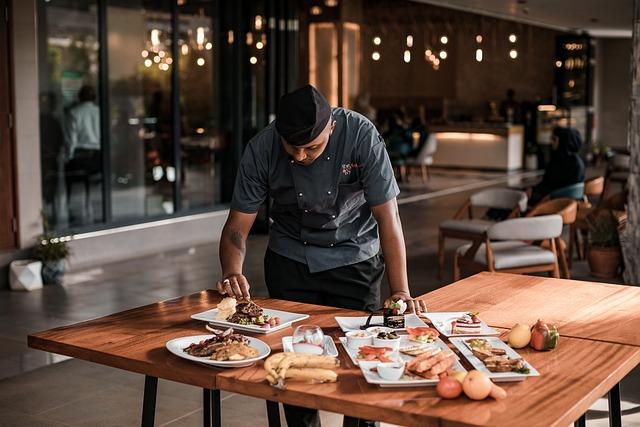In today’s fast-paced world, where convenience often trumps quality, the allure of hiring a full-time private chef for your family is increasingly compelling. As more individuals seek to prioritize health, wellness, and personalized culinary experiences, the demand for private chefs is on the rise. However, the process of finding and hiring the right culinary expert can be daunting, given the multitude of factors to consider. This article delves into the analytical aspects of this process, offering a comprehensive guide to identifying the right fit for your household’s unique needs and preferences. From understanding the benefits and costs associated with employing a private chef to navigating the intricacies of contracts and culinary styles, we provide you with the insights and strategies necessary to make an informed and confident decision. Whether you are seeking to elevate your family’s dining experiences or address specific dietary requirements, this guide is designed to empower you with the knowledge to seamlessly integrate a private chef into your home.
Understanding Your Culinary Needs and Preferences
When embarking on the journey to hire a full-time private chef, it’s essential to have a clear understanding of your family’s culinary needs and preferences. Start by assessing your household’s dietary requirements, including any allergies, intolerances, or specific nutritional goals. This can include preferences for organic ingredients, gluten-free meals, or a focus on sustainable sourcing. Understanding these aspects will ensure that your private chef can craft meals that align with your family’s health and wellness objectives.
Beyond dietary needs, consider the variety of cuisines your family enjoys. Do you have a penchant for Mediterranean flavors, or is there a desire for a mix of global cuisines? Identifying these preferences will help in selecting a chef whose expertise matches your tastes. Here are some factors to contemplate:
- Meal Frequency: Determine how often you require chef-prepared meals, whether daily or only for special occasions.
- Service Style: Decide if you prefer plated meals, family-style dining, or buffet setups.
- Culinary Flexibility: Consider if you need a chef who can accommodate last-minute menu changes or special event catering.
By defining these elements, you will not only streamline the hiring process but also set the stage for a harmonious culinary partnership that delights your family every day.

Evaluating Credentials and Experience of Potential Chefs
When searching for a full-time private chef, a thorough evaluation of their credentials and experience is crucial to ensure you make the best choice for your family. Start by reviewing their culinary education and any certifications they might hold, such as a degree from a reputable culinary school or a certification from a recognized culinary association. These credentials can provide insights into their formal training and expertise in various cooking techniques and cuisines.
Beyond educational qualifications, delve into their practical experience. Look for a diverse background, such as experience in high-end restaurants, private households, or even specialty catering services. This experience can indicate their ability to adapt to different culinary environments and dietary preferences. Consider the following aspects when assessing their experience:
- Range of cuisines: Do they have a versatile palate that covers global cuisines, or do they specialize in a particular type?
- References and reviews: Have they received positive feedback from previous employers or clients?
- Creativity and adaptability: Can they create custom menus that cater to your family’s specific tastes and dietary requirements?
By meticulously analyzing these factors, you can confidently choose a chef who not only meets your culinary needs but also enhances your family’s dining experience with their skills and creativity.

Navigating the Hiring Process with Confidence
When embarking on the journey to find the ideal private chef for your family, it’s essential to approach the hiring process with a structured strategy. Begin by clearly defining your culinary needs and preferences. Consider the following:
- Cuisine Specialties: Determine if you need expertise in specific cuisines or dietary restrictions, such as vegan, gluten-free, or low-sodium options.
- Experience and Credentials: Look for chefs with substantial experience in private settings, and don’t hesitate to ask for references or a portfolio of their work.
- Personality Fit: Since this person will be a regular presence in your home, ensuring a harmonious personality match with your family is crucial.
Once you’ve established these criteria, leverage platforms that specialize in culinary professionals. Consider using chef placement agencies, which often have rigorous vetting processes to ensure quality candidates. Conduct thorough interviews, and, if possible, organize a trial cooking session to assess their skills firsthand. By maintaining a confident and methodical approach, you’ll be well-equipped to select a private chef who not only meets your culinary needs but also integrates seamlessly into your family’s lifestyle.

Ensuring a Seamless Integration into Your Household
To guarantee that your newly hired chef blends seamlessly into your household, it’s crucial to establish a foundation of mutual understanding and clear expectations. Begin by scheduling an initial meeting to discuss dietary preferences, meal schedules, and any specific culinary needs. This will not only help in aligning their expertise with your family’s tastes but also set a tone of open communication. Consider drafting a detailed contract outlining their responsibilities, working hours, and any other pertinent details to avoid misunderstandings later on.
- Communication: Maintain an open line for feedback and suggestions to foster a collaborative environment.
- Flexibility: Allow room for creativity in meal preparation while ensuring it aligns with your family’s preferences.
- Routine: Establish a consistent schedule that works for both the chef and your family’s lifestyle.
- Respect: Acknowledge their expertise and give them the freedom to introduce new ideas and dishes.
By addressing these aspects, you can create a harmonious working relationship that enhances your household’s culinary experience.



